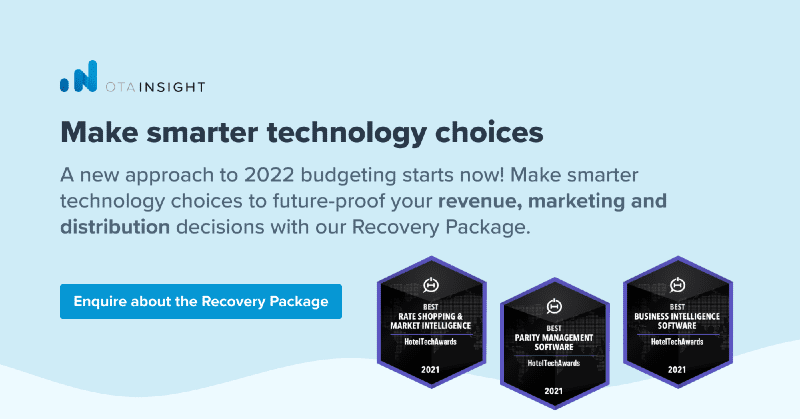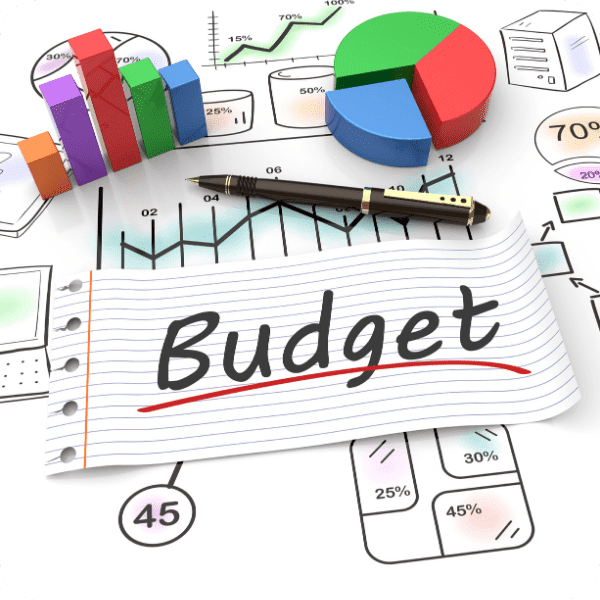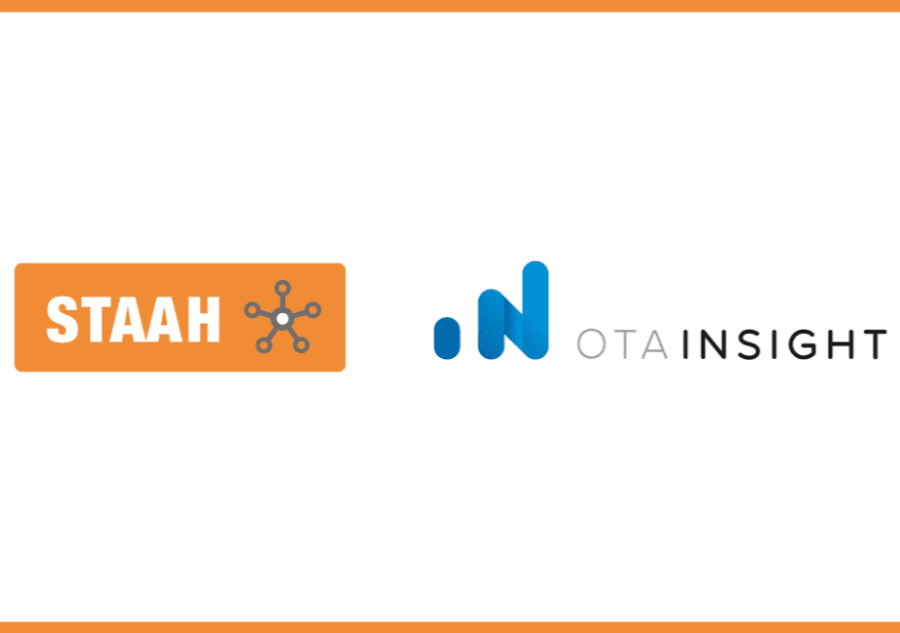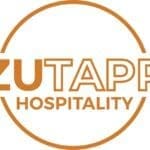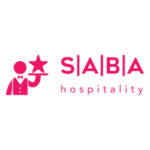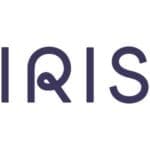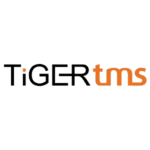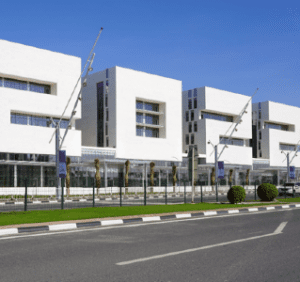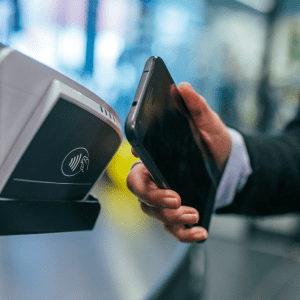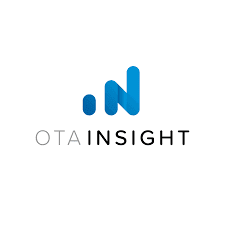 For hoteliers, June signifies the beginning of budget season. It’s the time of year when Revenue Managers, General Managers, and fellow commercial teams spend countless hours developing strategies, forecasting revenue, and outlining their annual budget for the following year.
For hoteliers, June signifies the beginning of budget season. It’s the time of year when Revenue Managers, General Managers, and fellow commercial teams spend countless hours developing strategies, forecasting revenue, and outlining their annual budget for the following year.
With the vaccine roll-out accelerating globally and recovery on the horizon, the budgeting process can be undertaken with a greater sense of optimism than 2020. However, the hospitality industry is still suffering from the effects of the pandemic. The rebound and recovery varies widely by country s resuming at vastly different rates, leading to a somewhat clouded outlook for 2022.
Budgeting in the ‘new normal’
This budget season you should reevaluate your suite of tech tools to ensure you are investing in intelligence solutions that harness the best quality data in the industry. In 2021, there is a critical need to take account of every single dollar in this year’s budget. Everyone’s bottom-line is down and hotel performance is unlikely to match the level of 2019 for an extended period of time. Competition has intensified, with the decline of business travel and the rise in popularity of alternative accommodation. In 2022, hoteliers simply cannot afford to allocate budget to technology solutions supplying sub-standard data, which will provide less accurate insights, leading to inefficiencies and unfulfilled revenue potential.
Traditionally, hoteliers have relied on historical data and year-over-year trends to forecast and build a budget. With 2020’sdata mostly irrelevant due to Covid-19, this poses a problem. One which can be partly resolved by using predictive, forward looking data to deliver a clearer picture of incoming demand in your market, when it will return, and from where.
Why should data accuracy matter to hoteliers?
Big data is growing exponentially, so much so that the International Data Corporation (IDC) predicts the world’s quantity of data will grow from 45 zettabytes (a trillion gigabytes) in 2019 to 175 zettabytes by 2025, a staggering growth rate of 61%.
In order for hoteliers to capture and leverage relevant, high-quality data in such a vast pool, it’s necessary to have the right business intelligence solutions. With 41% online penetration the travel booking industry is one of the leading sectors in tech. For many hoteliers, harvesting and processing data that can deliver actionable insights is a big challenge. If done imprecisely, bad data can affect a hotel’s business growth through poor decision making, wasted budget, loss of efficiency, and reputational issues. In the United Kingdom research from Royal Mail Data Services (RMDS) in 2018 discovered that organisations believed that inaccurate data cost them, on average, 6% of their annual revenue.
In the world of data quality is everything – you will only see real value with quality data. Data accuracy is a fundamental pillar of revenue management and it cannot and should not be overlooked. Here are a few of the ways revenue teams rely on OTA Insight’s high-quality data on a daily basis:
Assessing competitors’ prices: we achieve this by drawing data from a range of channels, including Brand.com, OTAs, and metasearch. The data is and then presented so that meaningful comparisons can be made in Rate Insight, and by which price-adjustment decisions are often influenced.
Assessing and forecasting future demand: we offer a blend of aggregated sets of forward-looking data that captures hotel booking intent in real time to feed into our market intelligence solution Market Insight , powering predictive demand forecasts.
Monitoring and taking action on disparity: available in Rate Insight and Parity Insight, the view of disparity between Brand.com and OTAs we offer is a by-product of the rates information we harvest.; The insights users take from this information help protect both reputation and the bottom line.
Dynamic hotel PMS analytics: We help alleviate the problem of siloed data by integrating and working with a hotel’s PMS, unlocking the potential of your PMS by drawing its data into Revenue Insight, and deliver lightning-fast, actionable insights so you can make better revenue decisions.
OTA Insight’s data is mined from a wide variety of trusted sources and then cleverly structured. It is harvested by using a multi-source strategy that combines application programming interfaces for external websites and state-of-the-art crawler technologies to bridge the gap between booking engines and our platforms.
To guarantee data completeness, the data is treated by employing an industry-leading follow-up system for our data retrieval pipeline and performing continuous automatic and manual checks. We operate a number of systems to ensure the highest levels of quality control. Including advanced anomaly detection and meticulous, manual spot checks on samples of all of our data. The end result? Hoteliers have access to the industry’s most accurate, complete, and reliable data sets.
In the next four sections, we will demonstrate why high-quality data will be key to navigating the increasingly complex business environment post-Covid, this budget season.
Poor quality data may be costing you money
Covid-19 and the resulting travel lockdown have severely impacted the hospitality industry, inflicting harsh financial conditions on hoteliers. The effect of Covid-19 is still being felt and 2022’s budget will have inevitably shrunk. Can you afford to allocate budget and resources to business solutions that provide inferior data?
Today’s business landscape is constantly changing – hoteliers need to remain agile and make decisions with speed and accuracy. Unfortunately, mistakes in the current economic climate can come at a heavy cost. Even a slight regression in the quality of your data can lead to flawed business decisions in areas such as pricing, customer targeting, competitor benchmarking, or parity.
This can hinder your ability to gain and retain customers, resulting in lost revenue and harming your profitability. A 2019 report by Dun and Bradstreet found that 19% of businesses had lost a customer by using inaccurate data. In a period of heightened competition and much lower occupancy than normal, inaccurate data can come at a particularly high cost.
IBM estimated that the cost of bad data to businesses in the United States, was $3.1 trillion in 2016 alone.. When a hotelier is able to make informed decisions underpinned by accurate data, enhanced business performance is the likely outcome. OTA Insight processes over one billion data points every day. With so much data needed for holistic revenue management, it’s vital we at OTA Insight are equipped with the hospitality industry’s most accurate, secure and reliable data to serve more than 55,000 hotels globally.
Quality data facilitates better decision making and greater collaboration
Every business decision taken at the executive level can have a direct impact on a hotel’s bottom line. These decisions are no better than the data they are based on. If decisions are guided by poor quality data, they will adversely affect a hotel’s ability to drive revenue. IReal-time data that is accurate, reliable and complete, provides insights that facilitate better decision making. This results in more favourable business outcomes and increased revenues – the ultimate goal for a Revenue Manager during the recovery period.
If there’s a lack of confidence in the data you are using, there will be a lack of confidence in the results. This can lead to inefficient decision making, inhibit executive buy-in and reduce team enthusiasm in the use of tech tools. For example, KPMG’s Global CEO Outlook’ report showed that84% of CEO’s surveyed said they didn’t trust the quality of data their decisions were based on. When outcomes are more dependable and risk is mitigated, confidence in the data and the intelligence solutions being used will increase.
Confidence in the quality of data, business intelligence solutions, and the resultant decisions means teams can better align their goals. This breaks down work silos and empowers greater collaboration; reporting can be easily interpreted and leveraged for insights among all commercial teams. In 2022, it’s critical that teams are aligned and pushing in the same direction. This “north star” alignment can be supported with user-friendly business solutions, powered by the industry’s highest quality data.
Unreliable data breeds inefficiency
The old adage of ‘garbage in, garbage out’ still rings true when referring to data. The quality of output is determined by the quality of input. If the data your hotel is receiving is not reliable, accurate, and up to date, the results will be useless to your team: costing you time, effort and wasted spend. Staff will waste precious time validating data and scrutinising reports to gain insights. Or even worse, poor data will create ill-informed decisions, and result in missteps and expensive, timely rework for teams – on top of their additional duties following the Covid-19 pandemic.
When high-quality data results in correct decisions being made, confidence develops among fellow commercial teams in the technology solutions being used. This improves the speed of decision-making at all levels, much needed when resources and bandwidth are at their thinnest margins.
Covid-19 has inflicted widespread job losses on the hospitality industry, and the priorities of hoteliers have markedly shifted. Teams have been doing more work with less. As hotels prepare to fully reopen, extra time and resources will be dedicated to delivering exemplary customer experience and making sure the property is Covid safe and secure.
Revenue teams simply can’t accept poor quality data that can lead to inefficiencies. With high-quality data, time isn’t spent adjusting for errors and manually reconciling data. Rather it is used to draw actionable insights, strategise and maintain focus on driving business growth. When budgeting this year, be sure that your tech stack alleviates the operational burden of your team.
Data accuracy means opportunity
Throughout 2020, travel was dependent on government restrictions and decimated demand levels inflicted damage on the hospitality industry. Revenue streams ran dry and top lines were driven down considerably. In 2022, hotel budgets will be inevitably constrained. There will be no room for error when forecasting – you can’t afford to under or overestimate in this climate.
Covid-19 has effectively ripped up the budgeting playbook. Many hoteliers are now looking to a zero-based budgeting model, with each function analysed for its need and cost for the upcoming period, irrelevant of previous years. But this doesn’t solve forecasting.
Thankfully, we can now picture a world beyond travel lockdowns. Yes, the number of variables impacting traveller decisions makes it difficult to accurately predict demand. Comparing your hotel’s performance versus same-time-last-year or 2019, is of little relevance when demand is following a different pattern from what we’ve ever seen before.
A forward-looking data solution like Market Insight enables hoteliers to look at accurate, pre-booking, top-of-funnel data points, like hotel and flight search data. This gives a clearer picture of unconstrained demand, 365 days in advance, soo hoteliers have a better glimpse into the future; forecasting and optimising where it matters most.
Effectively target shifting demand
Market Insight is a real-time intelligence solution that uses unique AI-powered technology to tap into millions of top-of-funnel search and pricing data sources including OTAs, GDSs, flight data, events, holidays, alternative lodging inventory, and meta-review sites to deliver location-specific, segmented demand insights. In combination with a market-leading real-time rate shopper, you will have the necessary, quality data to capitalise on opportunities moving into recovery in 2022.
With no MICE or corporate travel, hotel demand has shifted almost entirely to leisure. You are now competing with a whole different set of properties, including more private, alternative accommodation. In a fiercely competitive market, the highest quality, real-time data will give you insights your compset doesn’t have.
Market Insight enables hoteliers to understand shifting demand in advance and anticipate future demand levels for their area. This empowers you to respond to any uptick in demand before your competition, driving revenue with more informed pricing and marketing decisions.
The segmented demanded insights derived from high quality, forward-looking data have particular benefit for improving hoteliers marketing capabilities. Your marketing team can hone in on guests from particular destinations and ensure that they aren’t looking past your property. You can also identify what travellers are searching for and create specific promotions for targeted demographics and specific length-of-stay queries for a more precise, data-driven marketing strategy.
Making smarter technology choices
Budget season is rapidly approaching. Now is the time to evaluate your tech stack to ensure you are leveraging the industry’s best quality data. In 2022 there will be no margin for error – you need to make every dollar count. Budget may be limited for the upcoming year but when a competitive advantage is pivotal to survival and success in recovery, what might the cost of inaction be?
By making smarter technology choices now, you can optimise your budget, forecast effectively, and gain the insights needed for more informed, data-driven decision-making. In the midst of every crisis, lies great opportunity. Now is your time to seize that opportunity and empower your team to drive business growth in 2022, and well into the future maximise revenue.


